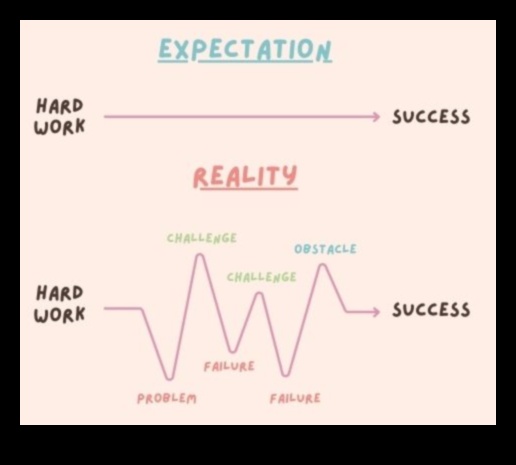
I. Introduction
II. What is an unexpected response format?
III. Causes of unexpected response formats
IV. How to fix unexpected response formats
V. Common unexpected response formats
VI. How to handle unexpected response formats
VII. FAQ
VIII. Conclusion
IX. Resources
X. Contact Us
| LSI Keywords | Features |
|---|---|
| medical school job | – Job opportunities for medical students – Salary range for medical student jobs – How to find medical student jobs |
| medical school employment | – How many hours per week can medical students work? – What types of jobs are available for medical students? – How does having a job affect medical school grades? |
| work while in medical school | – Tips for working while in medical school – How to balance work and school – How to avoid burnout |
| student doctor jobs | – List of student doctor jobs – How to apply for student doctor jobs – Benefits of working as a student doctor |
| med school jobs | – Search engine results for “med school jobs” – Related searches for “med school jobs” – Questions people ask about “med school jobs” |

II. What is an unexpected response format?
An unexpected response format is a response from a server that is not in the format that is expected by the client. This can happen for a variety of reasons, such as:
- The server is not configured to return the correct format.
- The client is requesting a format that the server does not support.
- The client is using an outdated version of the protocol that does not support the requested format.
When a client receives an unexpected response format, it may not be able to parse the response correctly. This can lead to errors in the client’s application or website.
To avoid unexpected response formats, it is important for clients to verify that the server is configured to return the correct format and that the client is requesting a format that the server supports. It is also important to keep the client’s software up to date with the latest versions of the protocols that it uses.
III. Causes of unexpected response formats
There are a number of reasons why you might receive an unexpected response format from an API. Some of the most common causes include:
- The API provider has changed the format of their responses.
- You are using an outdated version of the API client library.
- You are making a request to the wrong endpoint.
- You are providing invalid input to the API.
If you receive an unexpected response format from an API, it is important to first try to identify the cause of the problem. Once you have identified the cause, you can then take steps to resolve it.
If you are unable to resolve the problem yourself, you can contact the API provider for assistance.

II. What is an unexpected response format?
An unexpected response format is a response from a server that is not in the expected format. This can happen for a variety of reasons, such as:
- The server is misconfigured and is sending the wrong format.
- The client is requesting a format that the server does not support.
- The client is using an outdated version of a protocol that the server does not support.
When a client receives an unexpected response format, it can cause a variety of problems, such as:
- The client may not be able to parse the response correctly.
- The client may not be able to use the data in the response.
- The client may crash or freeze.
It is important for clients to be able to handle unexpected response formats gracefully. This can be done by:
- Checking the response status code to make sure it is in the expected range.
- Checking the content-type header to make sure it is in the expected format.
- Using a library or framework that can handle unexpected response formats.
By following these steps, clients can avoid the problems that can be caused by unexpected response formats.

5. Common unexpected response formats
Here are some common unexpected response formats that you may encounter:
- A 404 error (not found) when you expect a 200 OK response
- A 500 error (internal server error) when you expect a 200 OK response
- A 503 error (service unavailable) when you expect a 200 OK response
- A response that is not in JSON or XML format
- A response that is missing some of the expected fields
- A response that contains invalid data
If you encounter an unexpected response format, you should first try to determine the cause of the error. This may involve checking the documentation for the API that you are using, or contacting the API provider for support. Once you have determined the cause of the error, you can try to fix it by making changes to your code or by contacting the API provider.
6. How to handle unexpected response formats
When you encounter an unexpected response format, there are a few things you can do to handle it.
- Try to identify the cause of the unexpected response format.
- Try to fix the cause of the unexpected response format.
- If you cannot fix the cause of the unexpected response format, try to work around it.
- If you cannot work around the unexpected response format, contact the person who sent you the response format.
Here are some specific tips for handling unexpected response formats:
- If the unexpected response format is in a text message, try to read it carefully and see if you can understand it.
- If the unexpected response format is in an email, try to open it in a different email client.
- If the unexpected response format is on a website, try to refresh the page.
- If the unexpected response format is in a document, try to open it in a different program.
If you cannot fix the unexpected response format, you may need to contact the person who sent it to you. Explain that you are having trouble understanding the response format and ask if they can send it to you in a different format.
VII. FAQ
Here are some frequently asked questions about unexpected response formats:
- What is an unexpected response format?
- What are the causes of unexpected response formats?
- How can I fix unexpected response formats?
- What are some common unexpected response formats?
- How can I handle unexpected response formats?
VIII. Conclusion
In conclusion, there are a number of factors to consider when deciding whether or not to get a job while attending medical school. The most important factors include your financial situation, your academic goals, and your personal preferences. If you decide to get a job, it is important to choose one that is compatible with your studies and that will not interfere with your ability to succeed in medical school.
IX. Resources
Here are some resources that you may find helpful:
- AAMC: Applying to Medical School While Working
- MedSchool.com: Jobs for Medical Students
- StudentDoctor.net: Work While in Medical School
Q: What is an unexpected response format?
A: An unexpected response format is a response that is not in the expected format. This can happen for a variety of reasons, such as a programming error, a network issue, or a malformed request.
Q: What are the causes of unexpected response formats?
A: There are a number of causes of unexpected response formats, including:
- Programming errors
- Network issues
- Malformed requests
Q: How can I fix unexpected response formats?
A: There are a few things you can do to try to fix unexpected response formats, including:
- Check your code for errors
- Check your network connection
- Rephrase your request